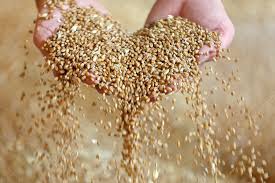
You may think it strange that I annotate magazines, but sometimes, thumbing through them afterwards, I enjoy revisiting certain lines. The sentences and paragraphs I choose are not necessarily pithy like an adage or purposeful like a sage. Sometimes they just strike me and the reason is, as the French say, je ne sais quoi.
For example, the September/October 2019 issue of Poets & Writers, I annotated these lines from a piece called “The New Nonfiction 2019”:
“I could not know then that it would take me nearly two decades to figure out what, exactly, I meant and that some of those ideas would compose my first book. Writing now about the experience of making this book feels like catching grain through spread fingers—almost but not quite like magic, since we know the best writing work is the hardest labor. It is still painful to remember much of it. To note all of the things that no one told me before I plunged: the tarrying loneliness of making a book; the confidence that waxes and wanes (mostly wanes); and the urgent matter of finding one’s tribe, so that when you realize the vast distance between starting and finishing and threaten to quit they can remind you that James Baldwin said, ‘Deep water and drowning are not the same thing.'” — Sarah M. Broom, author of The Yellow House (Grove Press, August)
“Before I wrote essays, I used to string together pretty sentences I’d call stories and then wait around for the world’s admiration. It was kind of like riding my bike through a parade in sunny weather but with a creeping sense that something wasn’t right. After college I discovered the essay and found a way into the real work—the hard work—I’d always wanted to do. I loved the scrappy elasticity of the essay, loved spending time in this place where you bring everything along, where you can fashion your own complicated misfit from some combination of a first-person perspective and the bizarre raw materials of the world. I even liked how, for a while there at least, the essay was not really capital-L literature, or not quite pure. My position was: ‘If you need me, I’ll be in the shadows working on my bastard art.’ Even now, writing essays gives me permission—to drag strange things home without explanation, to bring together disparate worlds, to live offline with my secrets.” –Krista Eastman, author of The Painted Forest (West Virginia University Press, October)
And from an interview of Ben George, senior editor at Little, Brown, in a piece called “Agents & Editor,” I noted this:
“Sadly, it’s a primary part of the job—falling in love with a book and getting your heart broken because someone else acquires it yet managing to keep your heart open for the next great book.”
(Nota bene: I loved the idea of an editor getting his heart broken instead of a writer. That happens? I asked. Of course it does. And every writer, for inspiration, should imagine a big-time editor losing out on his or her manuscript because some other publisher scooped it up first. This image is a long way from the more concrete one of boilerplate rejection emails.)
“I also don’t think a writer should ever make a change to a book that doesn’t in her gut feel like the right change to make. In an editorial letter from the novelist and New Yorker editor William Maxwell to Eudora Welty, Maxwell once said, simply, ‘I trust you to be firm about the unhelpful suggestions.’ I’ve always remembered that.”
(Nota bene: Note my attraction to quotes that empower writers who, by their very nature, are used to rejection.”)
“Look, every day we hope to read an amazing novel. Editors are first and foremost just readers who are moved and delighted by books. And the editor’s greatest desire is to bring an exquisite book to readers.”
(Nota bene: Amen, Mr. Just Reader. Amen! May I someday write a book that delights not only you, but both Little and Brown!)